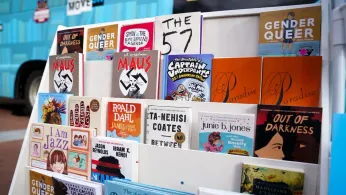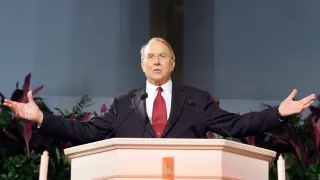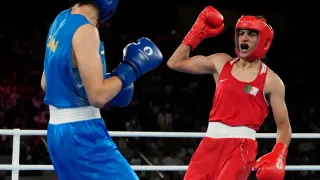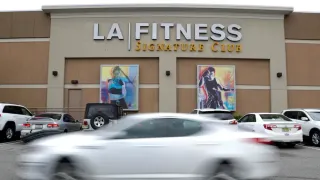
2 hours ago
Federal Judge Strikes Down Key Parts of Florida Book Ban, Affirming LGBTQ+ Students’ Rights
READ TIME: 3 MIN.
In a landmark decision on August 19, 2025, a federal judge struck down significant portions of Florida’s controversial book ban law, House Bill 1069, finding that the statute’s broad restrictions on school library books violate the First Amendment rights of students and authors. The court specifically ruled that more than 20 books challenged under the law—including several with LGBTQ+ themes—are not obscene, directly refuting the state’s justification for their removal .
HB 1069, enacted in 2023, empowered parents, school officials, and others to challenge books in school libraries and classrooms, targeting materials alleged to be “pornographic” or otherwise inappropriate for minors. Critics asserted that the law’s vague language led to the removal of dozens of books, including titles featuring LGBTQ+ characters and themes, as well as works addressing race, gender, and historical injustices .
A coalition of publishers, authors, parents, and students challenged the law in federal court, arguing that it amounted to viewpoint discrimination and deprived young people—especially LGBTQ+ students—of access to diverse perspectives and affirming representation .
U.S. District Court Judge Carlos E. Mendoza ruled in favor of the plaintiffs on five of seven counts, declaring that the law’s prohibition on material describing sexual conduct was “overbroad and unconstitutional.” The court found that the challenged books, many of which center on LGBTQ+ experiences and coming-of-age stories, do not meet the legal definition of obscenity and are protected by the First Amendment .
“The judge affirmed that students have a right to access information and that authors have a right to have their books reach their intended audience without viewpoint-based limitations placed on that access,” said Stephana Ferrell, Director of the Florida Freedom to Read Project .
The ruling explicitly identified 23 books as not obscene, making clear that their restriction was unconstitutional. This decision, while not immediately restoring banned books to every school shelf, establishes a legal precedent that will make it easier for parents and students to challenge future removals .
For LGBTQ+ students and their allies, the ruling is particularly significant. Many of the books targeted under HB 1069 dealt with issues of identity, coming out, and the lived experiences of lesbian, gay, bisexual, transgender, and queer individuals. Advocates have consistently argued that access to affirming literature is critical for LGBTQ+ youth’s well-being, mental health, and sense of belonging .
Dan Novack, Vice President and General Counsel at Penguin Random House—a lead plaintiff in the case—described the ruling as “a win for students and school librarians,” emphasizing that “no more judging a book by its cover or a contextless snippet. It’s going to be grounded in constitutional law, the First Amendment, and we’re going to be able to defend those books on the basis of their literary value” .
The decision also offers hope to educators and librarians who have faced pressure and even threats of professional discipline for refusing to remove books. Novack noted, “They were being coerced and threatened by the state government into removing those books. They no longer have that tool in their arsenal at the state government level” .
Despite the ruling, the Florida Department of Education has announced plans to appeal, signaling that the broader battle over book bans and educational freedom is far from over . Similar legal challenges continue at the local level, including ongoing litigation in Escambia County regarding school library censorship .
Publishers, authors, and civil rights advocates have hailed the decision as a major victory but caution that vigilance is necessary to protect students’ right to access books—especially in an environment where legislative efforts to restrict LGBTQ+ representation in schools remain active .
As litigation continues and the state’s appeal proceeds, this federal ruling stands as a powerful affirmation of the rights of LGBTQ+ students, educators, and the broader community to access diverse and meaningful stories.






